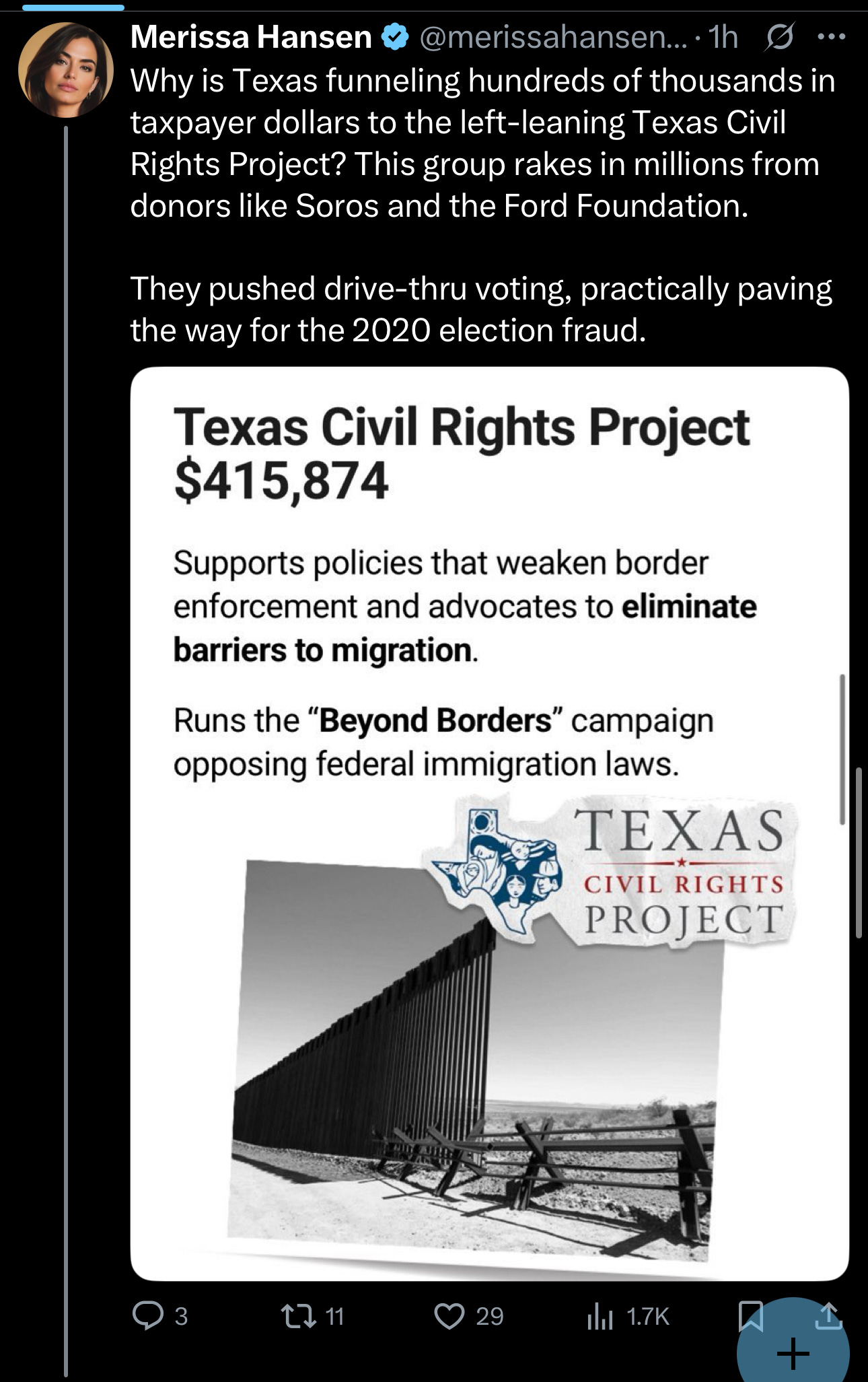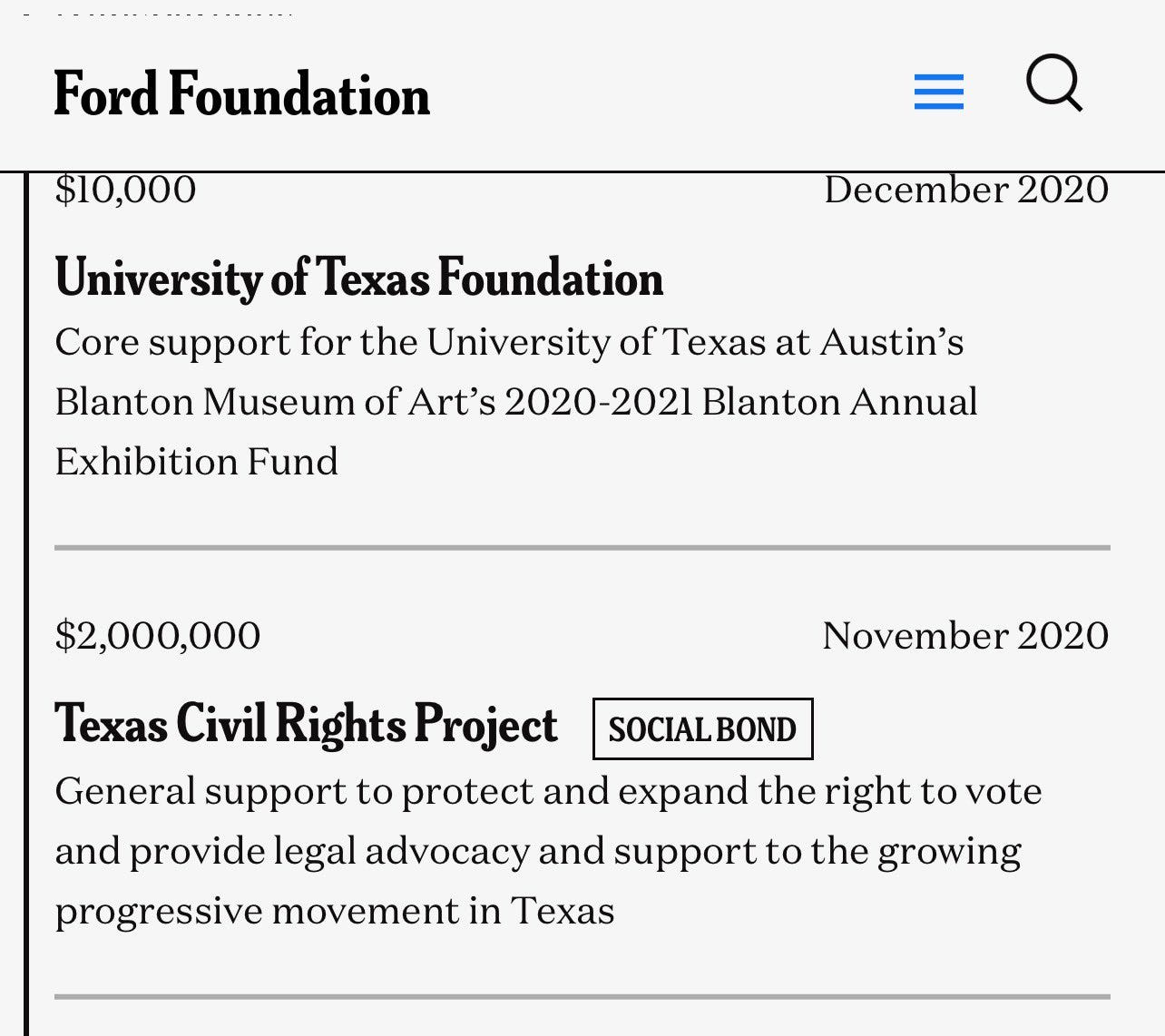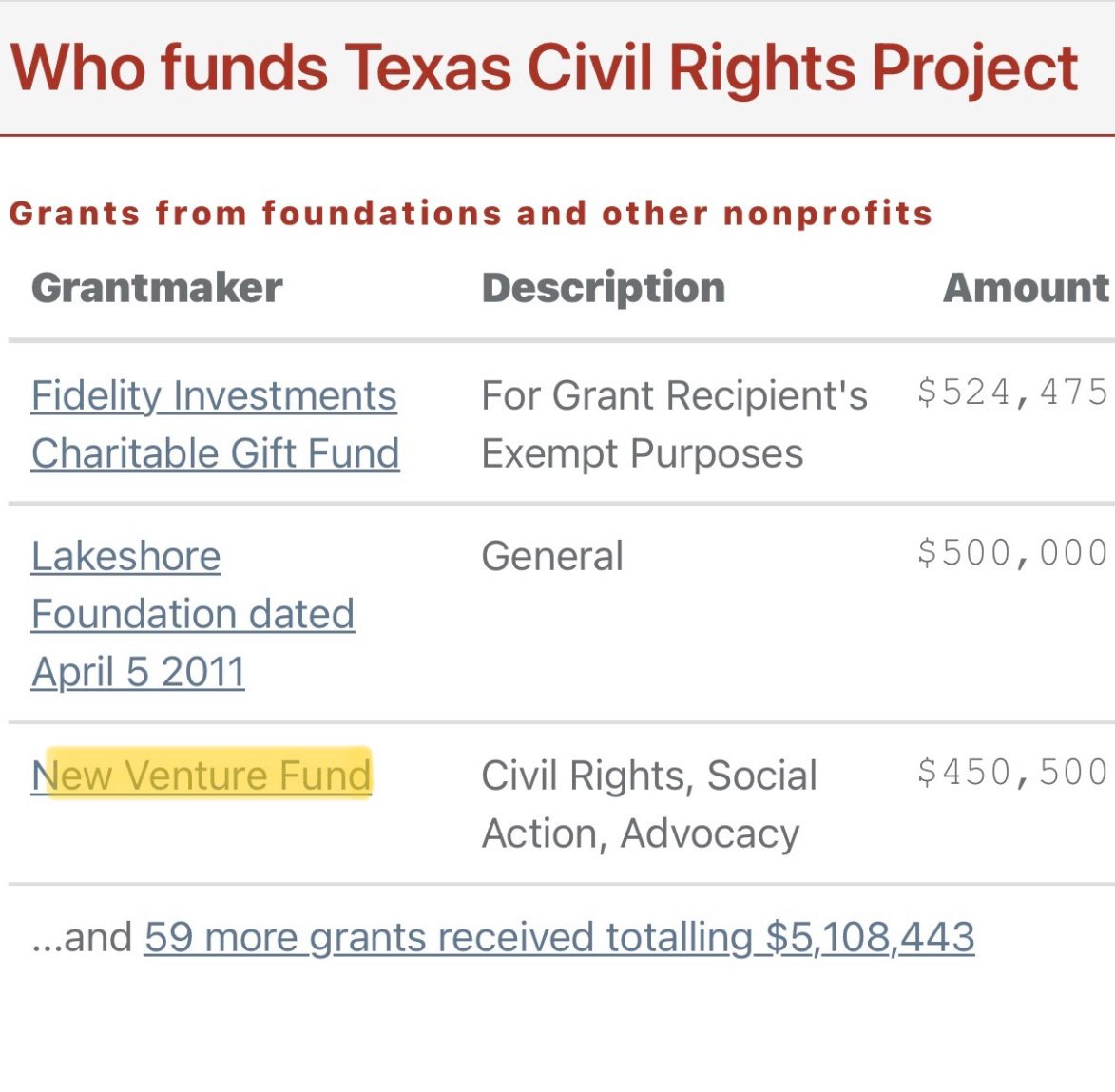Texas Taxpayers Hand over Hundreds of thousands of Dollars of grants to Texas Civil Rights Project
The Texas Civil Rights Project (TCRP), a left-leaning legal advocacy group established in 1990, has faced significant criticism for receiving $415,874 in Texas taxpayer-funded grants while also securing substantial private donations from the New Venture Fund. Known for its aggressive litigation, including defending drive-thru voting during the 2020 election and partnering with Susman Godfrey L.L.P. on the landmark O’Donnell v. Harris County bail reform case, TCRP’s actions have sparked debate over the state’s use of public funds. Critics argue that taxpayer money should not support an organization some view as a “chaos agent” disrupting Texas through high-profile lawsuits, raising questions about transparency and trust in public systems. This article explores TCRP’s funding, key legal battles, and the implications for public confidence, connecting to concerns about deceptive practices.
Taxpayer Funding for TCRP
The Texas Office of the Attorney General (OAG), led by Ken Paxton, allocated $415,874 in grants to TCRP, primarily through programs like the Domestic Violence High Risk Teams Grant, aimed at reducing domestic violence and supporting victims. Funded by legislative appropriations, these grants seek to enhance community safety but have drawn scrutiny due to TCRP’s history of suing the state over election policies and criminal justice issues, such as its defense of drive-thru voting and the O’Donnell bail reform case. Critics question the logic of funding an organization that often opposes state policies, echoing concerns about deceptive tactics undermining trust.
TCRP also receives significant private funding from the New Venture Fund, a progressive donor-advised fund managed by Arabella Advisors, which reported $1.49 billion in revenue from 2018 to 2022. TCRP actively solicits tax-deductible donations, including cash, stock, and illiquid assets, which bolster its resources. This dual funding—public grants and private donations—raises concerns about TCRP’s priorities, especially as its lawsuits challenge state election laws and policies. The combination of funding sources fuels perceptions of conflicting agendas, aligning with questions about deceptive practices eroding public trust.
TCRP’s Voting Rights Program focuses on expanding democratic access for marginalized groups, leading to numerous lawsuits challenging Texas election policies. Key cases include:
1. Drive-Thru Voting (2020)TCRP, with the ACLU and others, defended Harris County’s drive-thru voting program, which allowed voters to cast ballots from vehicles to reduce COVID-19 risks. Nearly 127,000 votes were cast at 10 locations, but Republican plaintiffs argued it illegally expanded curbside voting. TCRP successfully defended the program, with courts rejecting challenges in 2020 and 2021, though critics claimed it favored Democratic areas, intensifying election integrity debates.
2. Voter Citizenship Review (2019): TCRP and partners sued to stop a flawed voter roll purge targeting 95,000 alleged noncitizens, arguing it discriminated against naturalized citizens and voters of color. A federal court halted the effort, and a settlement required the state to discard faulty data.
3. Vote-by-Mail Access (2020) TCRP sought to expand mail-in voting during the pandemic, challenging Texas’s restrictive eligibility rules, though the effort saw limited success.
4. Other Challenges: TCRP opposed voter registration restrictions, defended individuals like Crystal Mason against voting-related prosecutions, and highlighted voting access issues in a 2019 report.
These lawsuits have made TCRP a key voting rights advocate but a frequent opponent of Texas’s election policies, amplifying scrutiny of its taxpayer funding.
O’Donnell v. Harris County: Bail Reform Milestone
Partnering with Susman Godfrey and others, TCRP filed O’Donnell v. Harris County in 2016, challenging the county’s bail system for discriminating against low-income misdemeanor defendants. The 2019 consent decree mandated reforms, including releasing most defendants without cash bail and improving pretrial processes, saving millions in detention costs. Susman Godfrey waived over $2.1 million in fees to fund implementation, strengthening the partnership’s impact. Critics alleged the lawsuit enabled political reform outside traditional channels, though courts upheld its legitimacy. The case’s success highlights TCRP’s influence but fuels concerns about its taxpayer-funded litigation.
The $415,874 in taxpayer grants to TCRP has led critics to question why Texas funds an organization seen as causing disruption through lawsuits like drive-thru voting defenses and O’Donnell reforms. Its New Venture Fund donations, combined with a 2017 loss of $900,000 from the Texas Access to Justice Foundation, deepen concerns about ideological priorities over state interests. This tension mirrors concerns about deceptive practices, as funding an organization that challenges state policies feels like a betrayal of taxpayer trust. Supporters argue TCRP’s work protects constitutional rights, justifying its funding, but critics see it as destabilizing governance and elections.
To address these concerns and restore trust, reformers suggest:
1. Transparent Grant Processes: Clear criteria and oversight for OAG grants to align with state priorities.
2. Grantee Vettin: Review organizations’ litigation and donor ties before awarding funds.
3. Independent Audits: Regular checks on grant recipients’ activities to ensure proper use of taxpayer money.
4. Donation Disclosure: Require public reporting of major private donations for groups receiving public funds.
These steps aim to prevent perceptions of deception and ensure public funds do not support divisive litigation.
TCRP’s $415,874 in taxpayer grants and New Venture Fund donations have sparked debate over Texas’s funding decisions and TCRP’s role in shaping policy through lawsuits. Its defense of drive-thru voting, voter roll challenges, and the O’Donnell bail reform highlight its impact but draw criticism for politicization. The question of funding perceived “chaos agents” underscores the need for transparency to ensure taxpayer dollars serve the public interest, addressing concerns about deception and rebuilding trust in public systems.




Terrible mistake to fund these extreme leftists